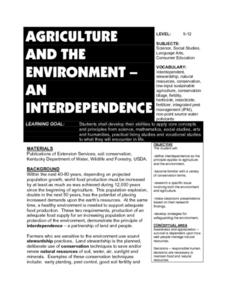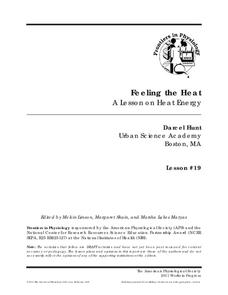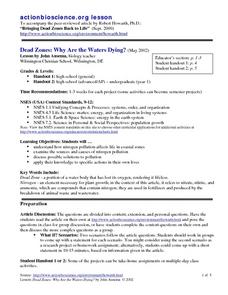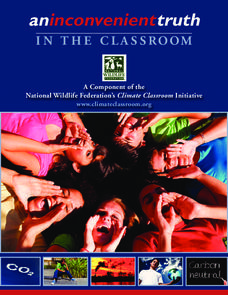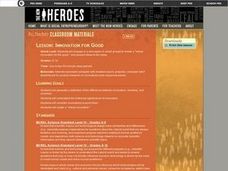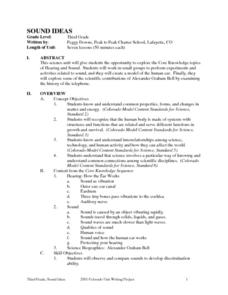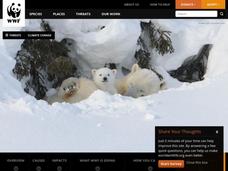Curated OER
Agriculture and the Environment
Students investigate the interdependence of agriculture and the environment. They research areas of interdependence and provide examples of situations where farmers are practicing conservation in the local area. Their findings are...
Conserve Wildlife Foundation of New Jersey
The Great Peregrine Scavenger Hunt - On the Internet
The story of one bird provides valuable insight into general animal behaviors and interactions. Young researchers investigate the peregrine falcon using a web search. They analyze the behaviors of the raptor including its migration...
Curated OER
Genetic Disorders
Students examine how living cells reproduce and how traits are passed on. In this genetic reproduction lesson students research a topic and present it to the class.
Education Outside
Creature Jeopardy!
After conducting research on a given scientific animal name, group members take a walk around their school and look for the specified animals in that classification. Then, they come back to their worksheets and create five creative clues...
American Physiological Society
Feeling the Heat
How do the changing seasons affect the homes where we live? This question is at the forefront of engineering and design projects. Challenge your physical science class to step into the role of an architect to build a model home capable...
NASA
Revising an Investigation
Write, edit, and then revise! The fourth lesson in a five-part series asks peers to provide feedback on research. Individuals then use the research to edit and revise conclusions and develop their presentations.
Curated OER
Dead Zones: Why Are the Waters Dying?
Students investigate the effects of pollution on marine ecosystems. They read and discuss an article, identify the effects of pollution on marine life, conduct research on local nutrient pollution, and conduct local water quality studies.
Curated OER
Solar Arrays for the Space Station
Students explore the challenges that are faced when transporting materials into space. They review the various forms of energy, including solar arrays, that are used on the International Space Station and how generating this energy calls...
Energy for Keeps
The Energy Times
Extra! Extra! Read all about past and present energy use in a classroom-made historical newspaper. Useful as a cross-curricular assignment between science, history, and language arts, the project is sure to get young journalists...
Curated OER
Galileo and the Inevitability of Ideas
Students research Galileo's work and contributions to science. They make a timeline of Galileo's life, discuss the historical context for his book "Dialogue on the Two Chief World Systems" and examine his trial by the Inquisition for...
Curated OER
Design a Reef!
Using a miniature coral reef aquarium kit, young ecologists model this unique ecosystem. They research various coral reef organisms and their niches, and they culminate the project by working together to write a report. Use this activity...
Moorea Coral Reef Long-Term Ecological Research Program
Paper Plate Fishes
Tropical fish make great art projects! Use paper plates to design, color, and assemble round and oval-shaped fish based on photographs of actual fish found along the Moorea Coral Reef. Kids learn about different fins- including the...
Curated OER
Genome: The Secret of How Life Works
What do you have in common with a fruit fly? About 60 percent of your DNA. The resource, divided into two units, is intended for grades four to eight and another for high schoolers. Both units include eight lessons covering the genome as...
Curated OER
Blog Your Truth
Students explore communication by participating in a digital journalism activity. In this aboriginal research lesson, students view a sample blog on the Internet and identify the techniques behind blogging and Internet journalism...
American Psychological Association
Facebook Activity
Imagine if Sigmund Freud or Charles Darwin had a Facebook page. As part of a study of major historical figures in the field of psychology, class members are assigned a psychologist and design a mock Facebook page that includes such items...
Curated OER
Ocean Life
Mini-marine biologists use Scholastic Explorers website to learn about declining numbers of leatherback sea turtles and dusky dolphins. They fill out a K-W-L chart and observation journal worksheet, which are both provided in the lesson...
Curated OER
Aquatic Roots
Young scientist use reference materials to research various local aquatic plants and or animals to find out whether they are natives or exotics. They investigate their impacts on people, other animals and the environment. High schoolers...
Curated OER
Exploring Owls
What can young scientists discover from dissecting an owl pellet? Explore the owl food chain, beginning with an introduction to these predatory birds. Suggested strategies here include creating a podcast and purchasing a poster, however...
National Wildlife Federation
An Inconvenient Truth in the Classroom
Global warming — what a hot topic! A thorough unit challenges learners to research, read, explore, and write about carbon, its role and increasing nature in our atmosphere, and how global warming is affecting lives and environments...
Curated OER
Innovation for Good
Many historical innovations were created for the common good. Get your students ready for life as a critical thinker with this lesson which defines the differences between innovation and invention. They will conduct Internet research,...
Curated OER
Sound Ideas
Complete a unit of lessons on hearing and sound. Learners conduct sound experiments, research the history of the telephone and scientific contributions of Alexander Graham Bell, and create a model of the human ear.
Curated OER
Turning the Tide on Trash: Marine Debris Curriculum
Six different lessons comprise this unit on marine debris. Science, language arts, social studies, and art projects make this an ideal interdisciplinary unit. The result will be well-informed future citizens who can help make a...
Curated OER
Climate Change And Disease
Students consider the role of climate change in the occurrence of vector born diseases such as malaria. In small groups, they research a specific vector to complete an information chart on climate changes in the region where the vector...
PBS
Lesson Plan: “Seeing the Way: A Brief History of Cataract Surgery”
After looking at the history of cataract surgery techniques, your high schoolers will have a new perspective on medical and scientific advances. Kids alternate between watching short video clips, class discussion, and computer research....


